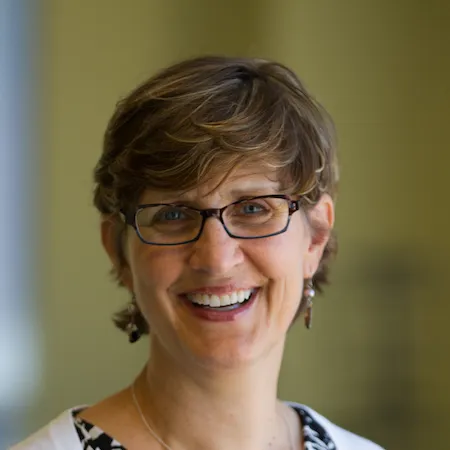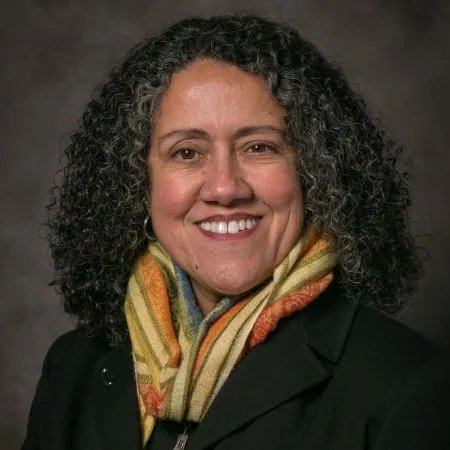This is a closed meeting for a funded group of visiting scholars.
The Immersion Program centers around a series of collaborative workshops led by Immersion Distinguished Scholars. These workshops are designed to immerse participants in theories and methods foundational to understanding current environmental challenges and their underlying socio-environmental systems.
Presenters
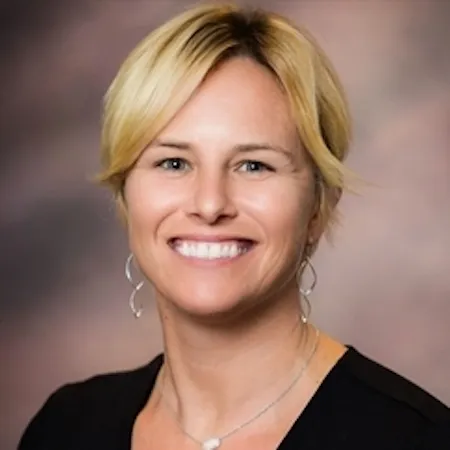
Kristin Baja
Kristin Baja is the Urban Sustainability Director's Network (USDN's) first Climate Resilience Officer, responsible for helping cities identify strategic ways to advance climate resilience planning and implementation and building their capacity to take action. The majority of her time is spent supporting cities and facilitating deeper relationships between local governments and other stakeholders in the Mid-Atlantic region. Prior to USDN, she served as the Climate and Resilience Planner with the City of Baltimore's Office of Sustainability where she led the city's climate adaptation and equity...

Kristin Baja
Kristin Baja is the Urban Sustainability Director's Network (USDN's) first Climate Resilience Officer, responsible for helping cities identify strategic ways to advance climate resilience planning and implementation and building their capacity to take action. The majority of her time is spent supporting cities and facilitating deeper relationships between local governments and other stakeholders in the Mid-Atlantic region. Prior to USDN, she served as the Climate and Resilience Planner with the City of Baltimore's Office of Sustainability where she led the city's climate adaptation and equity work. She holds a Masters of Urban Planning and a Masters of Science from the University of Michigan. In 2016, she was recognized by the Obama Administration as a Champion of Change for her work on climate and equity.
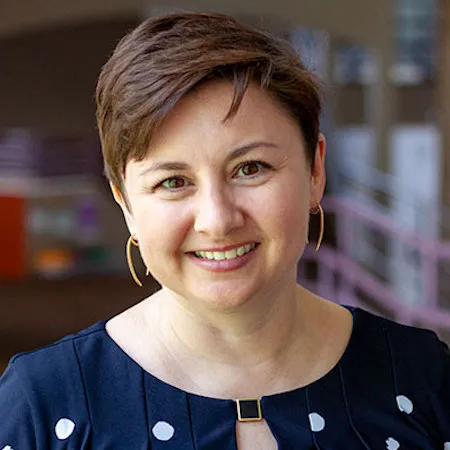
Melissa Kenney
Dr. Melissa Kenney’s research broadly addresses how to integrate both scientific knowledge and societal values into policy decision-making under uncertainty. Her research expertise includes conceptual modeling and decision structuring, indicators, systems analysis, multi-attribute methods, and evaluation of decision support to address environmental policy decisions. These methods have been applied to a range of topics including participatory global change indicators, setting environmental policy criteria, economic analyses for restoration alternatives assessment, expert elicitation, and value...

Melissa Kenney
Dr. Melissa Kenney’s research broadly addresses how to integrate both scientific knowledge and societal values into policy decision-making under uncertainty. Her research expertise includes conceptual modeling and decision structuring, indicators, systems analysis, multi-attribute methods, and evaluation of decision support to address environmental policy decisions. These methods have been applied to a range of topics including participatory global change indicators, setting environmental policy criteria, economic analyses for restoration alternatives assessment, expert elicitation, and value of information of indicators. She was an AAAS Leshner Leadership Institute Public Engagement Fellow, focusing on stakeholder engaged research to create climate-resilient solutions in the U.S. and Chesapeake Bay region. Melissa earned a PhD from Duke University, focusing on water quality modeling and decision analysis.
Betsy Otto
Betsy Otto is a Senior Fellow with the Word Resources Institute’s (WRI’s) Global Water Program. Over the past several years at WRI, Betsy has led development of Aqueduct™, a global water risk-assessment and mapping tool to inform private- and public-sector investment and water-management decisions. Betsy works with the Water Program team to develop and apply tools and information and to engage businesses, NGOs, and governments to create positive change in managing water resources worldwide. Betsy also works with staff across WRI to incorporate water considerations and sustainable solutions for...
Betsy Otto
Betsy Otto is a Senior Fellow with the Word Resources Institute’s (WRI’s) Global Water Program. Over the past several years at WRI, Betsy has led development of Aqueduct™, a global water risk-assessment and mapping tool to inform private- and public-sector investment and water-management decisions. Betsy works with the Water Program team to develop and apply tools and information and to engage businesses, NGOs, and governments to create positive change in managing water resources worldwide. Betsy also works with staff across WRI to incorporate water considerations and sustainable solutions for cities, energy, governance, finance, and climate adaptation purposes. With over 20 years of experience working on water resource management, ecosystem protection, and urban water systems, Betsy has worked to promote sound land and water planning and urban water infrastructure systems that incorporate upstream ecosystem services, include green infrastructure designs in cities, and integrate drinking water, stormwater, and wastewater management. Betsy earned a master’s in Water Resources Management from the University of Wisconsin’s Nelson Institute, a master’s in Business Administration from Northwestern University’s Kellogg School, and a bachelor’s degree in Economics from the University of Illinois. From 2006–2007, she was a Loeb Fellow at Harvard University’s Graduate School of Design, where she studied international water management, urban infrastructure, and water and sanitation issues. Betsy served as a member of SESYNC’s External Advisory Board.
External Links:
https://www.linkedin.com/in/betsy-otto-ab162828/
Astrid Caldas
Dr. Astrid Caldas is a senior climate scientist with the Climate and Energy program at the Union of Concerned Scientists (UCS). Astrid does research on climate change adaptation and resilience with practical policy implications for ecosystems, the economy, and society. Her work also focuses on science communication, environmental justice, and equitable climate-related policies. Before joining UCS, Astrid was a Science & Technology Policy Fellow at the American Association for the Advancement of Science; a climate change and wildlife science fellow at the nonprofit conservation group Defenders...
Astrid Caldas
Dr. Astrid Caldas is a senior climate scientist with the Climate and Energy program at the Union of Concerned Scientists (UCS). Astrid does research on climate change adaptation and resilience with practical policy implications for ecosystems, the economy, and society. Her work also focuses on science communication, environmental justice, and equitable climate-related policies. Before joining UCS, Astrid was a Science & Technology Policy Fellow at the American Association for the Advancement of Science; a climate change and wildlife science fellow at the nonprofit conservation group Defenders of Wildlife; and a research scientist at the University of Maryland. Astrid has a lifelong passion for butterflies and moths, which she has studied for many years and likes to use as models to raise awareness of climate and land use changes. She holds a PhD in ecology from the Universidade Estadual de Campinas in the state of São Paulo, Brazil. In addition to a MS in entomology from the Universidade Federal do Paraná, Brazil, she earned an MS in environmental management from the University of Maryland Global Campus. Astrid served as a member of SESYNC’s Scientific Review Committee.
External Links:
https://twitter.com/climategeek
https://www.linkedin.com/in/acaldas
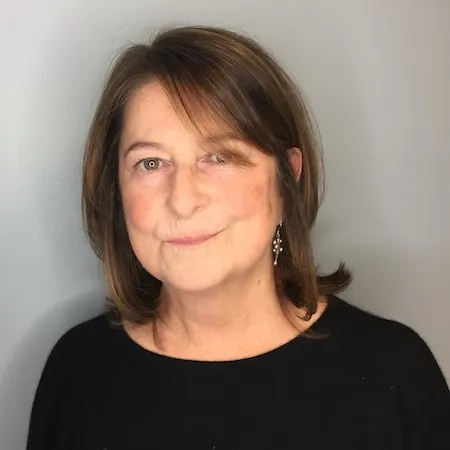
Betsy Cody
Betsy Cody is a sabbatical fellow at SESYNC focusing on decision-making structures and processes used in various ecosystem restoration initiatives. Previously, she was a specialist in natural resources policy at the Congressional Research Service (CRS), U.S. Library of Congress, where her analytical expertise focused on western water resource policy issues and national water resources policy generally. In her 28 years with CRS, she worked on multiple water resources issues (flood policy, drought, watershed and ecosystem management, and Bureau of Reclamation issues), as well as federal land...

Betsy Cody
Betsy Cody is a sabbatical fellow at SESYNC focusing on decision-making structures and processes used in various ecosystem restoration initiatives. Previously, she was a specialist in natural resources policy at the Congressional Research Service (CRS), U.S. Library of Congress, where her analytical expertise focused on western water resource policy issues and national water resources policy generally. In her 28 years with CRS, she worked on multiple water resources issues (flood policy, drought, watershed and ecosystem management, and Bureau of Reclamation issues), as well as federal land management issues, and international environmental finance issues. Her work at CRS involved analyzing complex legislation, policies, laws, and scientific information and concisely translating key facets for policymakers and others involved in the policy-making process. This work entailed communicating research findings and historical and scientific contexts to policy and decision-makers at all levels—including testifying before Congress on five occasions. Cody holds an MPA from the University of Washington Evans School of Government, Seattle, WA, and a BS from Lewis & Clark College, Portland, OR. She currently serves on the American Water Resources Association (AWRA) Board of Directors and previously served as the national organization's Finance Chair. She also served two terms as President of the AWRA National Capital Region Section (NCRS).
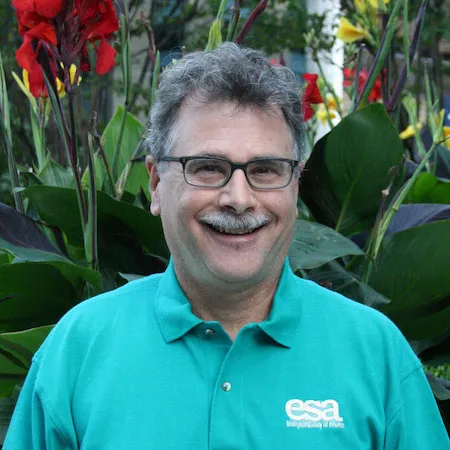
Richard Pouyat
Dr. Richard Pouyat is currently president of the Ecological Society of America (ESA). Richard received his PhD in ecology from Rutgers University in 1992, and an MS in forest soils and BS in forest biology at the College of Environmental Science and Forestry in 1983 and 1980, respectively. He was the National Program Lead for Air and Soil Quality Research for Research & Development at the USDA Forest Service in Washington, D.C., and he was recently on a detail to the White House Office of Science and Technology Policy (OSTP). Richard is an original co-principal investigator of the Baltimore...

Richard Pouyat
Dr. Richard Pouyat is currently president of the Ecological Society of America (ESA). Richard received his PhD in ecology from Rutgers University in 1992, and an MS in forest soils and BS in forest biology at the College of Environmental Science and Forestry in 1983 and 1980, respectively. He was the National Program Lead for Air and Soil Quality Research for Research & Development at the USDA Forest Service in Washington, D.C., and he was recently on a detail to the White House Office of Science and Technology Policy (OSTP). Richard is an original co-principal investigator of the Baltimore Ecosystem Study, a Long-Term Ecological Research site, funded by the National Science Foundation.
